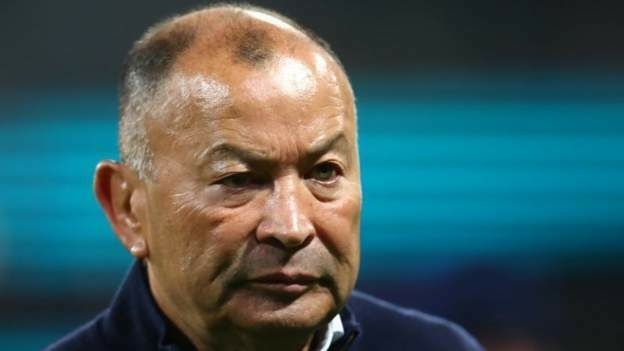Eddie Jones on how privately educated rugby players 'lack resolve'
It’s no secret that I believe that private schools shouldn’t exist. I’ve explained why so many times over the years I almost don’t know where to link, but try this from 2012, or this from 2019. Ben Werdmuller also shared his thoughts a week ago.
I’m pleased to see this report of comments made by Eddie Jones, England Rugby Union’s head coach on private schools. I think we’re coming to realise, as a society, that more diversity really is better for all of us.
Jones, 62, claimed the pathway produced players who had enjoyed a "closeted life" and lacked "resolve" in a weekend interview with the i newspaper.Source: Eddie Jones: England head coach admonished by RFU over private school system criticism | BBC Sport[…]
Jones had claimed in his interview that “you are going to have to blow the whole thing up” as the system yielded young players who struggled to lead because “everything’s done for you”.
“When we are on the front foot we are the best in the world,” Jones added. “When we are not on the front foot our ability to find a way to win, our resolve, is not as it should be."
Sports data and GDPR
This is really quite fascinating. The use of player data has absolutely exploded in the last decade, and that's now being challenged from a GDPR (i.e. data privacy) point of view.
Some of it could be said to be reasonably innocuous, but when we get into the territory of players being compared against 'expected goals' things start to get tricky, I'd suggest.

Slade's legal team said the fact players receive no payment for the unlicensed use of their data contravenes General Data Protection Regulation (GDPR) rules that were strengthened in 2018.
Under Article 4 of the GDPR, "personal data" refers to a range or identifiable information, such as physical attributes, location data or physiological information.
BBC News understands that an initial 17 major betting, entertainment and data collection firms have been targeted, but Slade's Global Sports Data and Technology Group has highlighted more than 150 targets it believes have misused data.
[...]
Former Wales international Dave Edwards, one the players behind the move, said it was a chance for players to take more control of the way information about them is used.
Having seen how data has become a staple part of the modern game, he believes players rights to how information about them is used should be at the forefront of any future use.
"The more I've looked into it and you see how our data is used, the amount of channels its passed through, all the different organisations which use it, I feel as a player we should have a say on who is allowed to use it," he said.
Source: Footballers demand compensation over 'data misuse' | BBC News
The crisis in professional sport is one of its own making
I couldn't agree more with this analysis from Barney Ronay, one of my favourite sports writers:
Professional sport is facing a crisis of unprecedented urgency. It must be prepared to face it largely alone.
At which point it is worth being clear on exactly what is at stake. This is a moment of peril that should raise questions far beyond simply survival or sustaining the status quo. Questions such as: what is sport actually for? And more to the point, what do we want it to look like when this is all over?
It helps to define the terms of all this jeopardy. There has been a lot of emotive rhetoric about sport being on the verge of extinction, its very existence in doubt, as though the basic ability to participate, support and spectate could be vaporised out from beneath us.
This is incorrect. What is being menaced is the current financial management of professional sport, its existing models and cultural practices, much of which is pretty joyless and dysfunctional in the first place.
Barney Ronay, Never waste a crisis: Covid-19 trauma can force sport to change for good (The Guardian)
Was sport less enjoyable before loads of money was thrown at it? As Ronay points out, Gareth Bale earning £600,000 per week "could keep every club in League Two in business by paying their combined wage bill out of his annual salary".
I'm not sure the current model is sustainable, so if the pandemic forces a rethink, I'm all for it.
